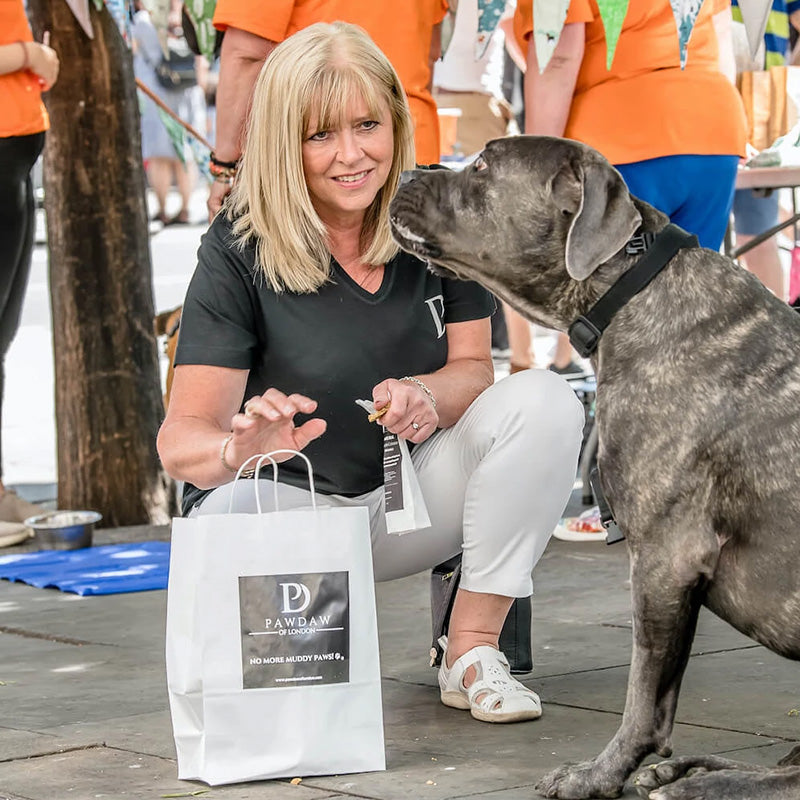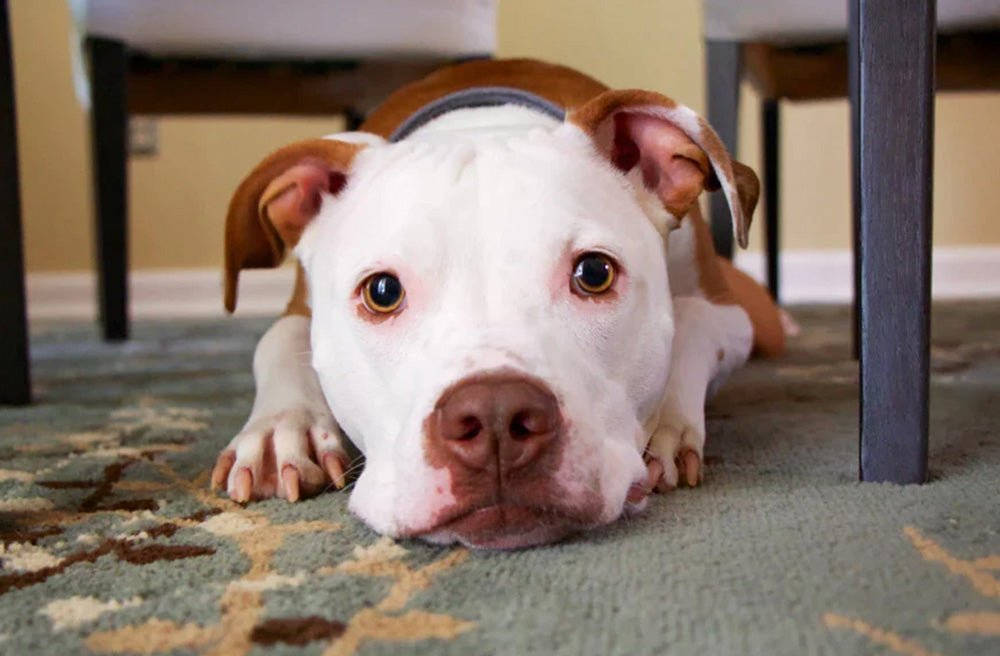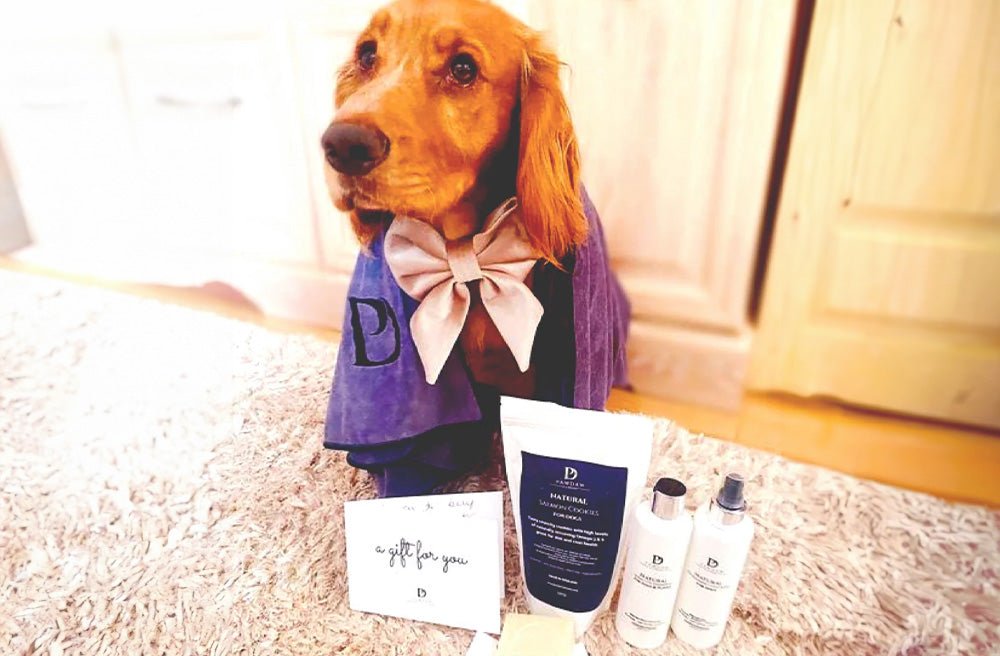Having a dog with sensitive skin requires patience, knowledge, and a gentle touch. Dogs can experience various skin issues, from allergies to irritations, just like humans. As dog owners, it's our responsibility to provide them with the care they need to keep their skin healthy and comfortable. In our guide, we'll explore the most important things you need to know about caring for a dog with sensitive skin.
Understanding Sensitive Skin in Dogs
Sensitive skin in dogs is quite a common issue. It’s important to address symptoms properly as it can lead to discomfort and even health problems if untreated. To provide the best care for your furry friend, it’s essential to understand the causes of sensitive skin as well as possible remedies or solutions to help you manage their condition.
What Causes Sensitive Skin in Dogs?
There are many factors that contribute to sensitive skin in dogs, including:
-
Allergies: Like us, dogs can be allergic to certain foods, plants, or environmental factors.
-
Skin Infections: Bacterial or fungal infections can cause skin sensitivity.
-
Parasites: Fleas, ticks, and mites can irritate a dog's skin.
-
Dietary Issues: Poor nutrition or food sensitivities can manifest as skin problems.
-
Environmental Factors: Harsh weather conditions, such as extreme cold or heat, can also affect your dog's skin.
-
Grooming products with poor ingredients: Many grooming products contain chemicals, and preservatives like Parabens and SLS which can be very harmful to the skin and coat.
Understanding the underlying cause of your dog's sensitive skin is the first step towards effective care. By addressing the root cause we can find more long term and effective solutions.
What Are The Signs Of Sensitive Skin In Dogs
Recognising the symptoms of sensitive skin in your dog involves observing their behaviour and physical condition.These are the signs we suggest you look out for:
-
Excessive Scratching: If your dog is constantly scratching or biting their skin, it may indicate irritation.
-
Redness or Inflammation: Check for red patches or inflammation on their skin, under the fur.
-
Hair Loss: Sensitive skin can lead to hair loss or thinning in the affected areas.
-
Dry or Flaky Skin: Notice if your dog's skin is dry and flaky.
-
Foul Odour: Unpleasant odours can be a sign of skin infections.
Treating Skin Sensitivity
If you notice any of these symptoms, it's very important to take prompt action to alleviate your dog's discomfort.
1. Consult Your Vet
If you’re concerned about your dogs skin health, the first and most crucial step is to consult a vet. They can perform a thorough examination, diagnose the issue, and recommend a suitable treatment plan for you to follow.
2. Maintain a Balanced Diet
Health begins with a nutritious meal. A well-balanced diet plays a significant role in maintaining your dog's skin and general health. Ensure you're providing high-quality dog food that meets their breeds nutritional needs without being packed full of fillers and nasty ingredients. Discuss any dietary concerns with your vet, especially if your dog has food sensitivities or is a fussy eater.
3. Appropriate Grooming
While grooming is an essential part of caring for your dog, over-grooming can not only contribute to sore or sensitive skin, but also cause it.
If you're not sure how regularly you should be bathing your pup, speak to your vet for more advice or read our blog post ... where we share some pointers to help you assess and plan the best grooming routine for your unique pup.
Brushing your dog's coat helps remove loose hair, prevents matting, and stimulates healthy skin circulation. We recommend gentle brushing between baths.
When trying to find the balance between appropriate grooming and a fresh smelling pup, we don't expect you to have to compromise. Try our Natural Dog Cologne, gently formulated with soothing Aloe Vera and scented with delightful essential oils, it's a great way to spritz away any pong between bath times without causing any irritation. It's perfect for freshening up dog begs and linens too.
4. Choose Sensitive Skin Shampoos
Be conscious about the products and cosmetics you use on your dog. Dog's skin and fur is different to human skin and hair, but just as delicate. When bathing, we recommend that you choose a natural shampoo that's specifically formulated for dogs skin and coats, regardless of their sensitivity. If, however, you are aware of an irritation or sore skin, look for specified hypoallergenic or sensitive skin shampoos for dogs. These are designed to be extra gentle on their skin and reduce the risk of allergic reactions and irritation, like our unscented Sensitive Shampoo for dogs and puppies which is fully UK Certified.
5. Protect from Environmental Factors
To avoid damaging their skin from external contributors, we recommend you shield your dog from extreme weather conditions.
In cold weather, provide a coat to keep them warm and dry; and when the weather gets wet avoid leaving their coats damp for extended periods of time and instead use a dog drying bag or invest in a decent dog towel that allows you to carefully blot water from their coat, reducing the need for vigorous drying. Likewise, during hot weather spells, we suggest using a cooling coat to shield them from extreme heat and help them regulate their temperature.
6. Balms and ointments
Of course, it all starts with trying to avoid discomfort and irritating the skin in the first place, but certain conditions may require topical treatment to sooth flare ups and provide direct alleviation.
To offer them instant relief, invest in a balm or cream that’s suitable to use directly on your pup’s skin, snout and paws. Plus you want to make sure it's edible, as pups tend to want to lick anything we put directly on their skin. Try our Natural Nose and Paw Balm, it's such a well-rounded relief salve that boast so many benefits and comes in a handy pocket sized tin so that you're always prepared to come to the rescue.
FAQs
Q: Can I use human shampoo on a dog with sensitive skin?
A: No, human shampoo is not suitable for dogs, especially those with sensitive skin. It can disrupt their skin's pH balance and lead to irritation. Always use dog-specific shampoos. To learn more, read our blog post → Understanding the Basics of Dog Shampoo
Q: How often should I bathe my dog with sensitive skin?
A: The frequency of bathing depends on your dog's breed and specific skin needs. Consult your vet for personalised guidance, but generally, once a month is a good starting point. Read our blog post for more details → A Comprehensive Guide to Washing your Pup
Q: Are there any home remedies for soothing sensitive skin in dogs?
A: Yes, you can try oatmeal baths, coconut oil massages, or chamomile tea rinses to soothe sensitive skin. However, always consult your vet before using home remedies.
Q: Can allergies cause sensitive skin in dogs?
A: Yes, allergies are a common cause of sensitive skin in dogs. Allergies can be triggered by various factors, including food, pollen, cosmetics, or environmental elements.
Q: Should I change my dogs diet if they have sensitive skin?
A: Changing your dog's diet may be necessary if food allergies are suspected. Identify the cause of your pup's skin sensitivity first. Consult your vet for guidance on selecting an appropriate hypoallergenic diet. Ensure any change in diet is introduced gradually over a two week period.
Q: Can sensitive skin in dogs be cured?
A: While some skin conditions may not be entirely curable, they can be managed effectively with the right treatment and care, allowing your dog to lead a comfortable life. It's best to start by identifying the cause.
Conclusion
Caring for a dog with sensitive skin requires dedication and vigilance. By understanding the causes, recognising the signs, and following the recommended steps, you can ensure that your furry companion enjoys a healthy and comfortable life. All pups are unique and precious beings and therefore require unique care. Be conscious about the products you are buying for your furry friend, from fabrics, to food, to grooming products, and choose the highest quality possible and always products that are made specifically for dogs. Remember, consulting your veterinarian is the first and most crucial step in providing the best care for your dog.


















